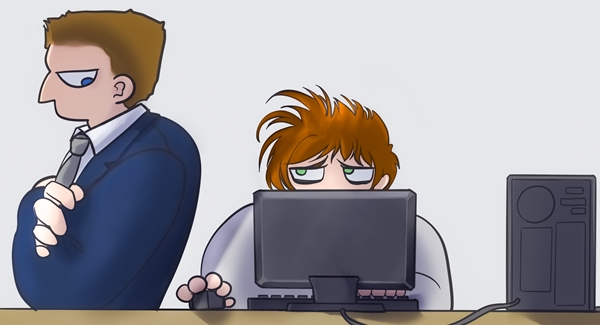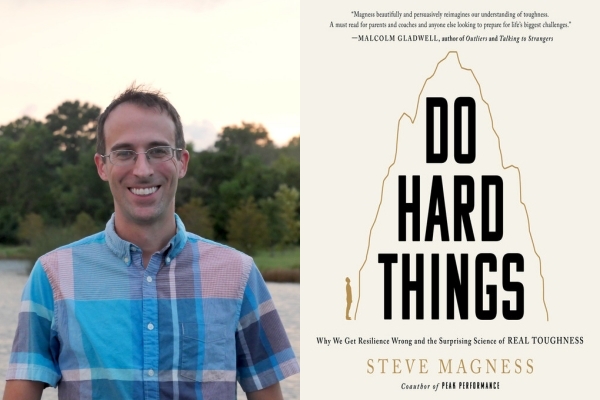Whether on the football field or in the corporate office, there’s a common notion that pushing people to their absolute limit will produce the best results. This can be true in short bursts — Google just announced a “simplicity sprint” — but it’s not a sustainable strategy for long-term problems.
Steve Magness, human performance coach and author of Do Hard Things, believes that this old model of “toughness” is broken. Using science and data, Magness shows how business leaders can sustain commitment for the long haul. He spoke with b. about how to build a resilient team.
Giving Employees the Space to Thrive
Employees “work harder, persist more, and are more motivated,” Magness says, when given “the runway to explore their talents.”
He cites psychological research on the folly of constraining employees. Sometimes it’s best to let them do their own thing.
“You want to give people the wiggle room so that they feel like they have a voice and can make some choices,” Magness said. “When people don’t feel like they have a voice, they get apathetic and resentful.”
Let Them Mirror Your Own Focus
The most famous writing advice is “Show, don’t tell,” and that’s true for motivation as well. Magness recommends focusing on your own, well, focus.
“Your brain is always looking for something better to do,” Magness says. “Our brain is a muscle, so that ability to stay focused — and even direct your attention instead of having it be stolen — is a skill that we can develop.”
Setting an effective routine can help. So can breaking an ineffective routine.
“I’m a big believer in having small moments throughout your day where you force yourself to pay attention,” Magness says. “That could be taking a short walk without your phone or a mindfulness practice where you’re just focused on the task at hand.”
Do Hard Things by Steve Magness is available now.






